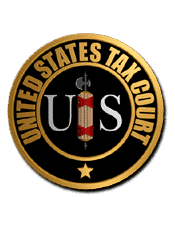Federal Law Cases Review Mortgages, Broker Price Opinions
A Credit Card Debt is Settled, But Tax on DOI Income Still Due
Judge Ruwe at the Tax Court finds petitioners owe tax on income from a settled credit card debt in Shepherd v. Commissioner, and a U.S. Bankruptcy Court for the Western District of Pennsylvania rules on the valuation of a mortgagee’s creditor’s secured claim in Buena Vista Oceanside, LLC., v. Optimum Bank
Shepherd v. Commissioner
T.C. Memo 2012-212
July 24, 2012
Judge Ruwe
United States Tax Court
Summary:
After respondent IRS determined a deficiency in petitioner taxpayers’ income tax relating to their exclusion, from I.R.C. § 61 gross income, of income arising from a discharge of indebtedness (DOI) per I.R.C. § 108, petitioners sought review on claims that they were “insolvent” per § 108. Issues included the proper valuation of their property including the status of the husband’s state pension as an asset.Â
When petitioners settled a $9,962 credit card debt for $5,550, the creditor issued a Form 1099 for DOI income of $4,412, but petitioners did not report it as income. When the IRS declared a deficiency, petitioners sought review. They argued that exclusion of the $4,412 from § 61 gross income was proper on the theory that they were insolvent per § 108 at the time the DOI income arose. 
The court sustained the IRS. First, it held that petitioners did not carry their burden to prove the fair market value (FMV) of two houses because they could not reasonably rely on value determinations by local tax authorities in the absence of evidence as to the valuation method especially insofar as, under New Jersey law, the assessed value of real estate was generally not equivalent to FMV. Nor was an “exterior broker price opinion” obtained by a bank sufficient evidence supporting petitioners’ valuation claims.
The court also agreed with the IRS that petitioner husband’s state pension was an asset for purposes of the insolvency analysis required by § 108 at least to the extent that the husband could have withdrawn funds as a loan from the pension account per N.J. Stat. Ann. § 43:15A-34 (1991). The court sustained the IRS’s determination that petitioners were not insolvent within the meaning of § 108 and that the entire amount of DOI income was includable for federal tax purposes.
Buena Vista Oceanside, LLC v. Optimum Bank
August 11, 2012
United States Bankruptcy Court for the Western District of Pennsylvania
Judge Fitzgerald
Summary:
Movant debtor sought a valuation of respondent mortgagee creditor’s secured claim and avoidance of it lien pursuant to 11 U.S.C.S. § 506 and Fed. R. Bankr. P. 3012. Debtor was a limited liability company that owned and operated two hotel properties. Creditor had made a loan to debtor in the original amount of $4,368,000 evidenced by a promissory note.Â
Debtor granted a first priority mortgage lien on the properties to the creditor. The court considered appraisals from both parties, finding the creditor’s value of $3,375,000 was too high, and the debtor’s valued the properties too low at $1,690,000.
The court considered deferred maintenance and concluded that a new drainage system be deducted from the value. The court relied on the income capitalization approach in determining the value of the properties and found that the combined value of the properties is $2,238,182.63. Thus, the creditor had a secured claim in the amount of $2,238,182.63 and an unsecured claim in the amount of $2,739,802.07.Â
The creditor was determined to hold a secured claim in the amount of $2,238,182.63 and an unsecured claim in the amount of $2,739,802.07.
Peter H. Agrapides, MBA, AVA, is a Principal at Western Valuation Advisors, which has offices in Salt Lake City, Utah, and Las Vegas, Nevada. Reach him as panayotiagra@yahoo.com.









